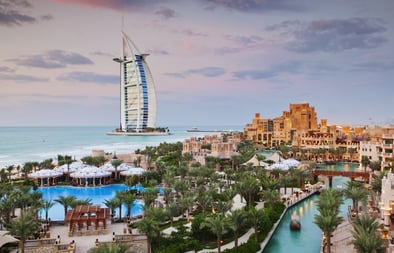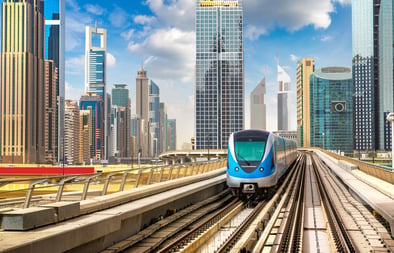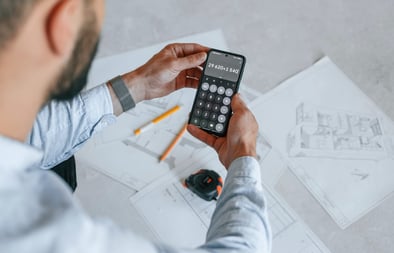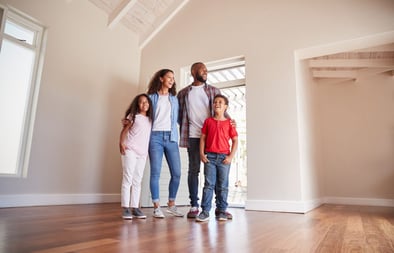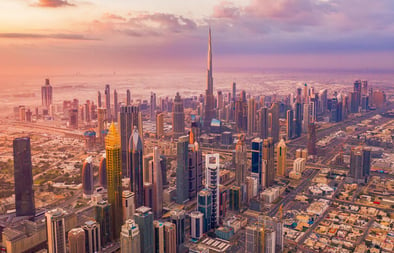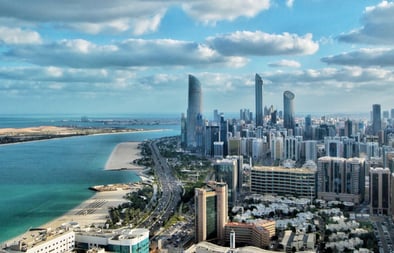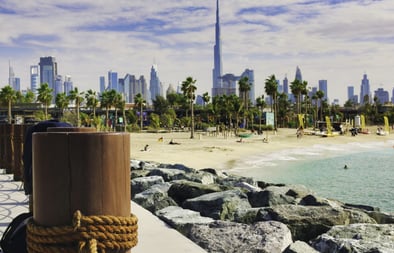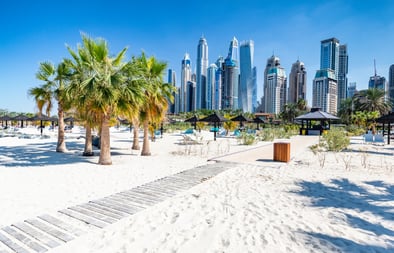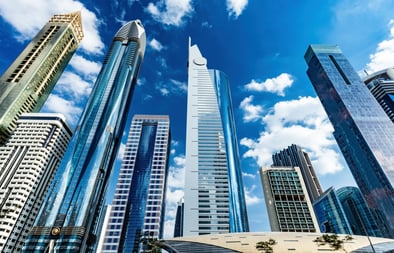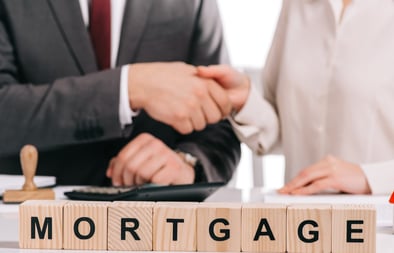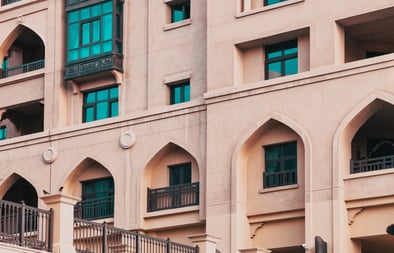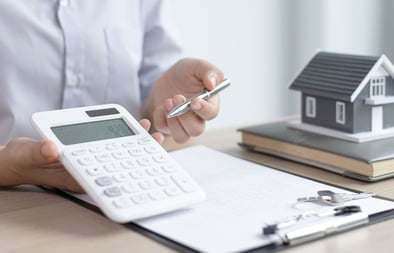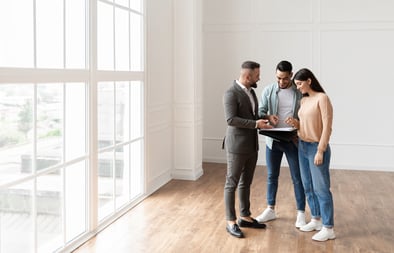When diving into Dubai's bustling real estate market, you may find yourself navigating through various terms, one of which is "Oqood." This term holds particular importance, especially if you are looking into purchasing off-plan properties—a popular option in Dubai given the city's rapid urban development and ambitious construction projects. As a newcomer to the Dubai property scene, or even if you’ve had some prior experience, understanding what Oqood entails and how it plays a pivotal role in property transactions can significantly enhance your buying process. Dubai’s real estate market operates under specific legal frameworks and regulations designed to ensure transparency and protect buyers, sellers, and developers alike. Oqood is a crucial component of this system, especially for those who are dealing with properties still under construction.
Purchasing an off-plan property involves a different set of considerations compared to buying a completed home, and Oqood is designed to manage the legal aspects of this type of transaction. Knowing how the Oqood system works is essential to ensure that your property investment is legally sound and properly registered. It serves as a bridge between the moment you sign a sales contract and the eventual handover of the completed property. Without understanding Oqood, you might miss out on vital steps that could affect your rights as a buyer, or worse, leave your investment vulnerable to unforeseen complications.
In this comprehensive guide, we’ll explore all the essential aspects of Oqood. Whether you are just getting started in Dubai’s real estate scene or expanding your property portfolio, having a clear understanding of Oqood will put you in a better position to make informed decisions. We will cover everything from what Oqood represents, why it is necessary, and how it benefits you as a buyer. By the end of this guide, you’ll be equipped with all the knowledge you need to navigate your next real estate venture with confidence and clarity, ensuring that your investment is protected under Dubai's legal framework.
What is Oqood?
Oqood, an Arabic word meaning “contracts,” is a government-backed online system used to manage the registration of off-plan property sales in Dubai. It was introduced by the Dubai Land Department (DLD) to streamline the off-plan property registration process, ensuring that buyers, sellers, and developers adhere to legal procedures.
Oqood facilitates the electronic registration of all off-plan property contracts between developers and buyers. By registering a property through Oqood, buyers ensure their rights are legally protected, even before the final title deed is issued. This digital system is particularly beneficial for off-plan purchases where buyers pay installments for properties that are still under construction.
The Purpose of Oqood
The main aim of the Oqood system is to bring transparency, security, and efficiency to the process of buying off-plan properties. In Dubai, off-plan properties (properties that are still under construction) have become highly popular, and Oqood ensures that these transactions are properly documented, protecting both buyers and developers.
Through Oqood, buyers can:
- Register their off-plan property contracts
- Transfer ownership before the property is completed
- Ensure their investments are protected under the legal framework of Dubai’s real estate laws.
For developers, Oqood acts as an essential tool for tracking the status of property sales and maintaining up-to-date, transparent records.
Why Oqood is Important
Oqood plays a vital role in safeguarding the interests of off-plan property buyers in Dubai. Here are the key reasons why Oqood is so important:
1. Buyer Protection: The Oqood system ensures that buyers’ rights are protected by requiring that off-plan property contracts are registered with the Dubai Land Department (DLD). This means that the sale is legally recognized by the government, reducing the risk of fraudulent transactions.
2. Transparency: By registering off-plan sales in a centralized system, Oqood provides transparency in the property market. Buyers can check the status of their contract and stay informed about the development’s progress.
3. Legal Security: Oqood ensures that every transaction is registered, meaning there is a clear record of the sale. This gives buyers legal recourse in the event of a dispute with the developer or any other third party.
4. Transfer of Ownership: Buyers who purchase off-plan properties through Oqood can transfer ownership of the property before completion. This is important for those who wish to sell their property or transfer it to another party before the project is finished.
Oqood vs. Title Deed
While both Oqood and title deeds are related to property ownership, they serve different purposes in Dubai’s real estate market.
- Oqood: This is a preliminary registration of an off-plan property sale. It ensures that the buyer and developer have legally agreed to the sale, even though the property is still under construction. Oqood is temporary and is used until the property is completed.
- Title Deed: Once the off-plan property is completed and handed over to the buyer, the title deed is issued. This is the final legal document proving full ownership of the property. The title deed is registered with the Dubai Land Department and signifies that the buyer is the legal owner.
How the Oqood Registration Process Works
Now that you know what Oqood is and why it’s important, let’s look at the step-by-step process of how it works. The registration process involves several parties, including the developer, the buyer, and the Dubai Land Department.
1. Developer Registers the Project
Before any off-plan property can be sold, the developer must register the entire project with the Dubai Land Department. This ensures that the project is approved and meets the necessary regulatory standards.
2. Buyer and Developer Agree on the Sale
Once a buyer expresses interest in an off-plan property, the buyer and developer will enter into a sale agreement. This contract outlines the terms of the sale, including the payment plan, handover date, and property specifications.
3. Registration with Oqood
After the sale agreement is signed, the developer is required to register the contract through the Oqood system. The developer submits the necessary details, including the buyer’s information, the property’s details, and the payment schedule.
4. Payment of Oqood Fees
To complete the registration, buyers must pay the Oqood registration fees. This fee is typically 4% of the property’s purchase price and is paid to the Dubai Land Department. Once the fee is paid, the registration is finalized.
5. Issuance of the Oqood Certificate
Once the registration process is completed, the buyer receives an Oqood Certificate. This certificate acts as proof that the property contract has been legally registered with the Dubai Land Department. The Oqood Certificate is valid until the property is completed and the title deed is issued.
6. Transfer of Ownership (Optional)
If the buyer wishes to transfer ownership of the off-plan property to another party before completion, they can do so through the Oqood system. This transfer must be approved by the developer and the Dubai Land Department.
7. Issuance of Title Deed
Once the property is completed, the final title deed is issued to the buyer, officially transferring full ownership.
Oqood Registration Fees
Oqood registration involves certain costs, and it’s important to understand what they are before proceeding with any transaction. Typically, the registration fee for Oqood is 4% of the property’s purchase price, paid to the Dubai Land Department. This fee is a standard requirement for all off-plan property purchases and is part of the legal process to ensure the sale is recognized by the government.
Additionally, there may be administrative fees charged by the developer or associated agencies for handling the registration process. Always review your sale agreement carefully to understand the full breakdown of costs associated with Oqood registration.
Benefits of Oqood for Buyers and Developers
The Oqood system offers several benefits for both buyers and developers, making it an essential component of Dubai’s off-plan real estate market.
For Buyers:
- Legal Assurance: With Oqood, buyers can rest assured that their property purchase is registered with the Dubai Land Department, protecting their rights.
- Transparency: The system provides buyers with detailed information about their property purchase, ensuring that they remain informed throughout the construction process.
- Flexibility: Buyers can transfer ownership of their property before completion if needed, offering flexibility in managing their investments.
For Developers:
- Streamlined Sales Process: Oqood simplifies the process of managing off-plan sales, allowing developers to focus on completing their projects.
- Transparency: Developers can easily track and manage sales, ensuring that all transactions are properly documented and registered.
- Compliance: Oqood ensures that developers comply with local laws and regulations, protecting them from potential legal issues.
Common Questions About Oqood
1. Is Oqood necessary for all property transactions in Dubai?
No, Oqood is only required for off-plan property transactions. Completed properties will have title deeds issued directly.
No, Oqood is only required for off-plan property transactions. Completed properties will have title deeds issued directly.
2. Can I sell my off-plan property before it is completed?
Yes, through the Oqood system, you can transfer ownership of your off-plan property to another party before the property is completed, provided the developer approves the transfer.
Yes, through the Oqood system, you can transfer ownership of your off-plan property to another party before the property is completed, provided the developer approves the transfer.
3. How long does it take to receive the Oqood Certificate?
The registration process is typically fast, and buyers usually receive their Oqood Certificate within a few days after completing the necessary paperwork and payments.
The registration process is typically fast, and buyers usually receive their Oqood Certificate within a few days after completing the necessary paperwork and payments.
Conclusion
Oqood is an essential part of Dubai’s real estate ecosystem, particularly for off-plan property buyers. It offers a transparent, secure, and efficient way to register off-plan property contracts, protecting both buyers and developers throughout the construction phase. By understanding the role of Oqood, you can navigate Dubai’s real estate market with confidence, ensuring that your investment is protected from start to finish. Whether you're an experienced investor or a first-time buyer, Oqood ensures that every step of your off-plan property purchase is legally sound and securely documented.

























